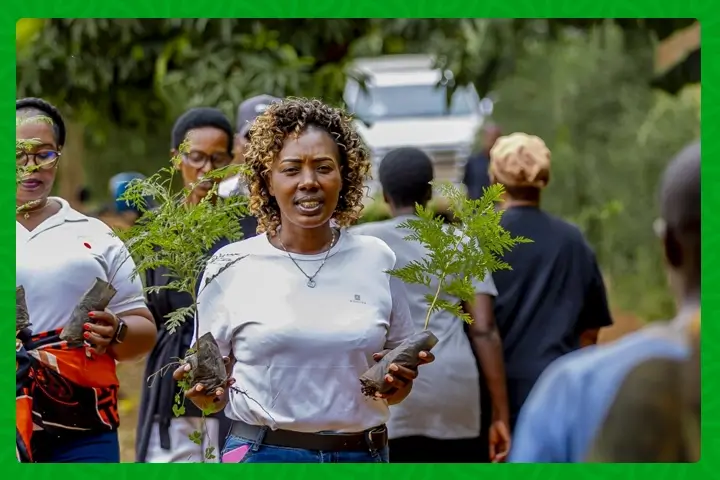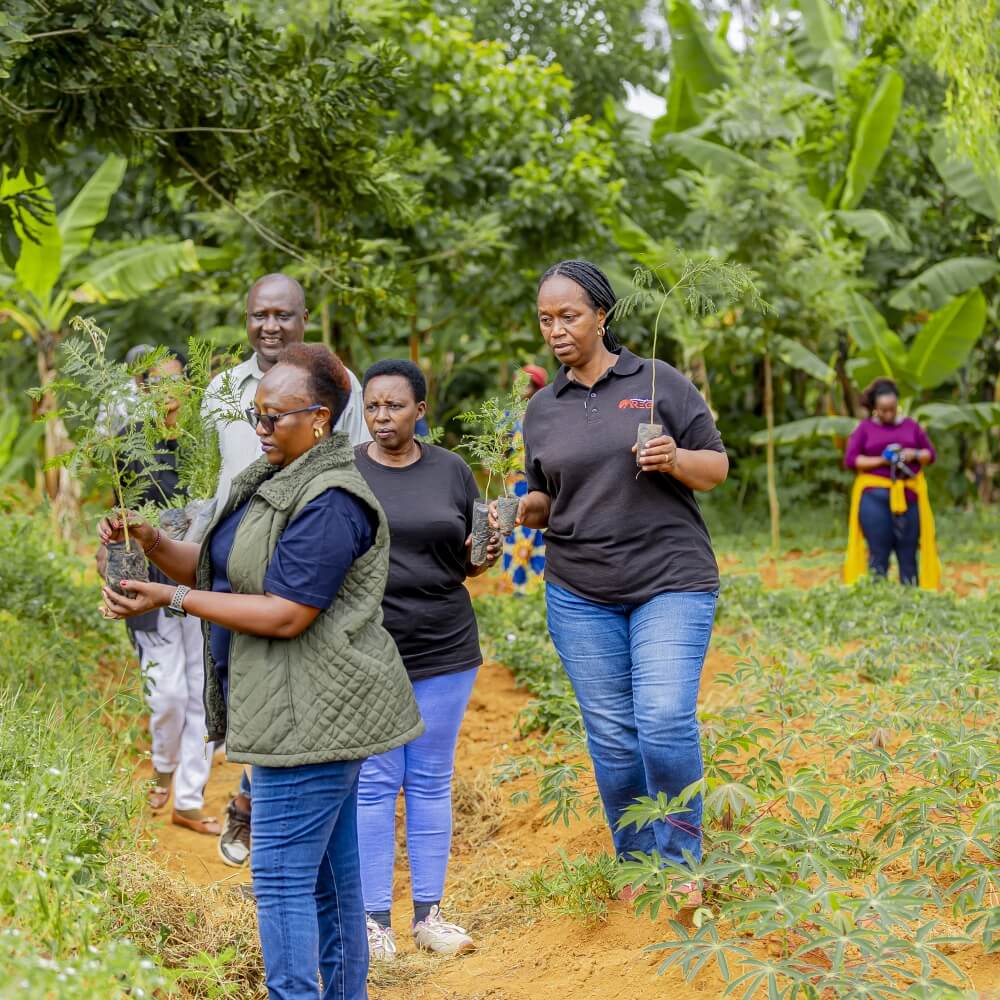
In the vast expanse of Rwanda’s Eastern Province, a silent battle rages—a battle against desertification, against environmental degradation, and against the looming specter of climate change. Yet, amidst the arid landscape, a beacon of hope emerges, led by a cadre of women liberators determined to reclaim the land and sow the seeds of a sustainable future.
The Urgent Call to Action
Rwanda’s Eastern Province, once adorned with lush forests, now bears the scars of deforestation—a consequence of past exploitation for agricultural land, charcoal, and construction materials. The ramifications are dire, with droughts crippling communities and exacerbating food insecurity. But hope springs eternal, as Maj (Rtd) Betty Mukarugwiza, a stalwart of Rwanda’s liberation struggle, stands at the forefront of change.
“We have witnessed the devastating effects of deforestation, but today, we embark on a journey of restoration,” proclaims Maj (Rtd) Betty Mukarugwiza. “Through tree planting initiatives, we shall revive the lands, rejuvenate the soil, and usher in an era of abundance.”
Empowering Women for Sustainable Development
Founded by women cadres and veterans of Rwanda’s liberation struggle, Organization Ndabaga epitomizes the resilience and determination of Rwandan women. Since its inception in 2001, the organization has been a beacon of empowerment, championing community development and gender equality.

Jeanne d’Arc Mukuranyange, Ndabaga’s vice president, envisions a future where women are not just beneficiaries but active agents of change. “Our mission goes beyond planting trees; it’s about equipping women with the tools and knowledge to thrive in a changing climate,” she asserts. “By fostering sustainable agriculture and promoting agroforestry techniques, we empower women to lead the charge against desertification.”
A Vision for the Future: Restoring Landscapes, Nurturing Communities
The scope of Ndabaga’s initiative is ambitious—to restore two million hectares of degraded land by 2030, aligning with Rwanda’s commitment under the Bonn Challenge. Through the distribution of agroforestry and fruit trees, the project aims to bolster biodiversity, stabilize soil, and conserve water resources.
“Community participation is the cornerstone of our endeavor,” emphasizes Jeanne d’Arc Mukuranyange. “By engaging local communities, particularly women, we foster ownership and ensure the sustainability of our efforts.”
Voices from the Ground: A Testimony of Resilience
Bonifride Mukarurayi, a resident of Bugesera District, bears witness to the profound impact of desertification on livelihoods. “For years, we have suffered from erratic rainfall, leaving our fields barren,” she laments. “But with the support of initiatives like Ndabaga’s, we dare to dream of a greener, more prosperous future.”
Samuel Furaha echoes the sentiment, emphasizing the critical need for diversified agroforestry systems. “The onslaught of drought has forced many to seek refuge in urban areas,” he observes. “But with concerted efforts to combat desertification, we can reclaim our land and secure a sustainable future for generations to come.”
A Call to Arms
In the battle against desertification, every tree planted is a victory—a victory for the environment, for biodiversity, and for the resilience of Rwandan communities. As Rwanda charts a course towards a greener, more sustainable future, the role of women as agents of change cannot be overstated. Through empowerment, education, and collective action, Rwanda’s women liberators are not just combating desertification—they are forging a path towards a brighter tomorrow, where the lands flourish, and the people thrive. Join us in this noble endeavor, as we plant the seeds of hope and nurture a legacy of sustainability for generations to come.
Original Article was written by Michel Nkurunziza
Stay updated with the latest farming tips and agriculture industry news from Africa by subscribing to our newsletter. Don’t miss out on valuable insights and updates. Follow us on Twitter, LinkedIn, and Facebook to join our farming community and stay connected with us.



















